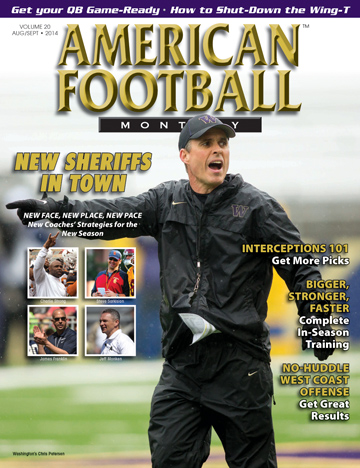Article CategoriesAFM Magazine
|
Managing Your Program: Building a Team – Objectives for Campby: Keith GrabowskiOffensive Coordinator Baldwin-Wallace College © More from this issue Unity/Chemistry - Establishing chemistry is a big goal for every team in camp. Hopefully, the ground work was established in the off season. No matter how the off season went, camp and the new season have a new dynamic in how the team will interact and work together. It is a time for leadership of the team to really take root. This is an area that can be coached, managed and developed. A good head coach and his staff will see some of the issues that must be worked on during camp so that the bond with the team is strong heading into the regular season. Camp presents a time when these things can be worked on a little at a time. It’s good to see a little of the players’ and team’s personalities off the field. Utilizing at least some of the down time between two-a-day practices can help accomplish this goal. Set....The full article can only be seen by subscribers.
|
|
|||||||
| HOME |
MAGAZINE |
SUBSCRIBE | ONLINE COLUMNISTS | COACHING VIDEOS |
Copyright 2025, AmericanFootballMonthly.com
All Rights Reserved





